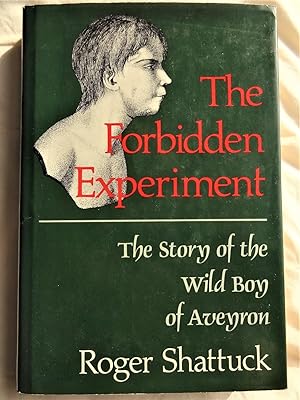Just before dawn on January 9, 1800, a mysterious creature emerged from a forest in southern France. Although he was human in form and walked upright, his habits were those of a young male animal. He was wearing only a tattered shirt, but did not seem troubled by the cold. Showing no modesty about his nakedness, he ate greedily, seizing roasted potatoes from a hot fire. He seemed to have no language skills, only grunting occasionally. A cause celebre developed over the question of what should be done with this puzzling wild boy. People wondered: Could he learn to speak? Or be taught to eat with a knife and fork?
On a cold morning just a few days into the year 1800, the citizens of the southern French village of Saint-Sernin awoke to a strange vision: a hairy boy, naked, who appeared as if by some witchcraft from the nearby woods. Captured while digging up vegetables from a tanner's garden, the boy did not--could not--speak. Instead, he emitted a few weird cries, trying to hide himself from his puzzled captors.
The next day, the gendarmes took the boy to a hospice in a nearby town. From there, writes the historian and literary scholar Roger Shattuck, his path took this "prisoner without a crime," now called Victor, into the studies and laboratories of revolutionary France, where the boy presented a rare homegrown instance of Rousseau's "noble savage" to the civilized world. Much scholarly and scientific debate surrounded him. Finally, Victor, now famed as the "wild boy of Aveyron," came under the care of a sympathetic young doctor who concluded that Victor was in fact an abandoned deaf-mute, intelligent but forlorn, who had somehow been able to survive on his own. Dismissed in a contemporary encyclopedia as "half wild" and "incapable of learning to speak in spite of all efforts to teach him," Victor was eventually forgotten. "A state pension kept him alive, like an animal in a zoo," writes Shattuck, "and when he died no one noticed." Scientific debate about his condition was renewed from time to time, however, and the story of the wild boy was influential in the development of several theories of language learning and human evolution. Shattuck's slender narrative is a fine work of scholarly detection, yielding an instructive episode in the history of science. --Gregory McNamee
![]()



